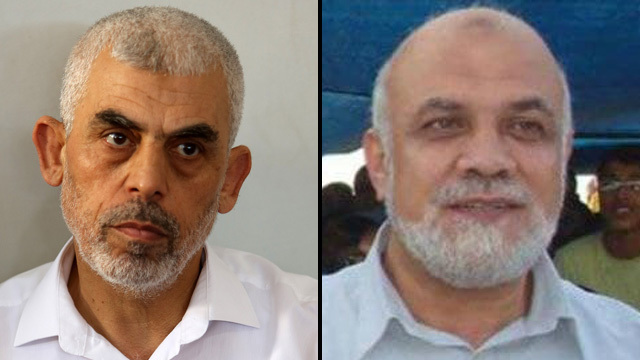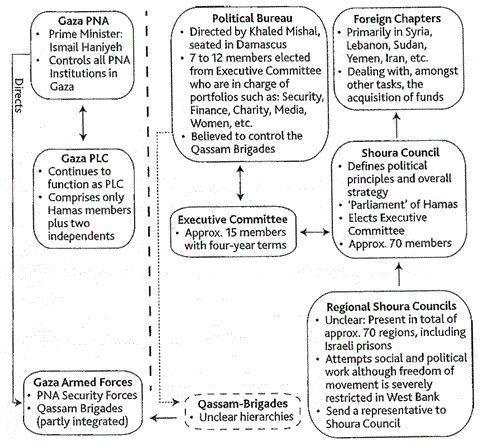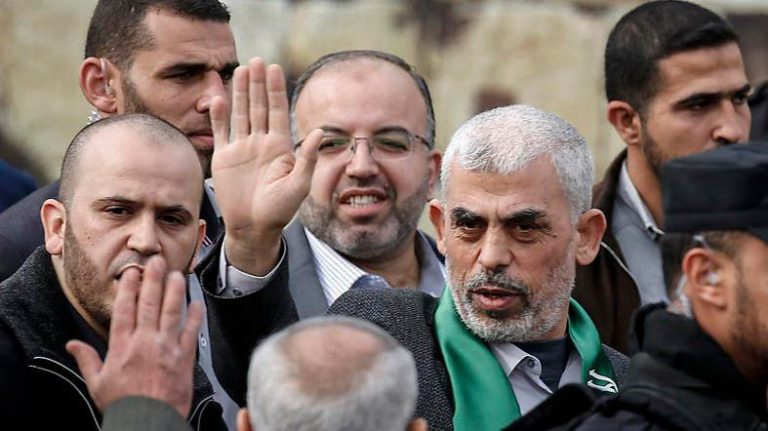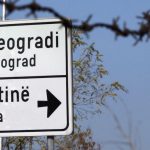Hamas under Yahya Sinwar will be pushed to closer ties with Iran and could become more radical in relations with Israel. However, it is likely that Sinwar will face a growing standoff with rivals in Hamas leadership. And his re-election despite unconvincing win may encourage him to try the Hamas’s top spot — currently occupied by political bureau chief Ismail Haniyeh.
Yahya Sinwar has been re-elected as head of Hamas’ political wing in the Gaza Strip for a second four-year term. The former member of the movement’s armed wing extended his tenure following a second round of voting ahead of the Palestinian general elections scheduled for 22 May, the first of their kind in 15 years. A presidential election is also set to take place this summer.
320-member, quasi-legislative Shura Council holds clandestine internal elections that can often take months. 58-year-old Sinwar was unable to garner more than 50% of support after 3 separate rounds of voting on Tuesday, but emerged victorious in a 4th ballot on March, 9th. The tight race is also a sign of Sinwar’s declining popularity among Hamas cadres in the Gaza Strip.

Sinwar won 167 out of 280 votes in Gaza’s Shura Council and succeeded against four other contenders including one of Hamas’ founders, Nizar Awadallah who sought to bring the movement closer with its Muslim Brotherhood roots, while Sinwar is said to have close ties with the exiled Mohammed Dahlan, a former security chief of the rival Fatah party whose stronghold is in the West Bank. The other three candidates were Mahmoud Zahar, Fathi Hammad, and Ziyad al-Thatha.

Chief of Hamas’ political bureau, Ismail Haniyeh, currently based in Qatar, congratulated Sinwar on his re-election.However, elections for Haniyeh’s post are also expected soon. He is due to run against his deputy Jamal Al Aruri and former Hamas chief Khaled Meshal. But Sinwar has also an eye on his position.
Awadallah conceded his defeat and said he would carry on performing his duties in the organization.
Sinwar was elected to the post in 2017, replacing Ismail Haniyeh. In 2017, he was also appointed the head of Hamas’s Gaza office, making him the Strip’s de facto ruler.
Awadallah, one of Hamas’ founder and a member of its political bureau, was reported to have won the first round of voting by five votes. He was a close associate of both former politburo chief Khaled Meshal and Hamas founder Sheikh Ahmed Yassin.
Sinwar’s victory shows he maintains a strong grip on things inside the movement, especially within its vital components such as the military wing. The win will enable Sinwar to pursue his policies, whether inside Gaza or with regional countries and the handling of the conflict with Israel.
The political wing has closer ties to Qatar and Turkey and tends to be more pragmatic in its dealings with Israel. The militant wing has closer ties with Iran and favors a more confrontational approach toward Israel. So, the fact they are backing Sinwar is the bad signal for Israel.
Sinwar, however, has also shown himself to be pragmatic till this time on some issues by preventing tensions with Israel from boiling over into war. But it does not mean he will keep Hamas from radical steps toward Jerusalem.
The election result is also the public signal of authenticity and solid legitimacy for HAMAS.
Yahya Sinwar is the son of Palestinian refugees, like the majority of the population of Gaza, and was born and raised in the impoverished Khan Yunis refugee camp. The values of his humble origins have reportedly been maintained throughout his life, and he is known for avoiding corruption.
Sinwar was arrested by Israel in 1988 for his terrorist activity. He was serving four life sentences for the abduction and murder of two Israeli soldiers in the late 1980s. He has called on militants to capture more Israeli soldiers.
The time spent in Israeli prison as well as his earlier activities in Majd gave him a certain credibility within the military wing of the organization and he began to have an expanded role in the Izzedine al-Qassam Brigades in the aftermath of the assassination of Ahmad Jabari. Jabari had led the negotiations for the prisoner exchange that secured Sinwar’s release.
Sinwar was released from an Israeli jail back in 2011 after 22 years imprisonment as part of a prisoner swap in exchange for the captured Israeli soldier Gilad Shalit.
In September, 2015 the Department of State has designated Yahya Sinwar, Rawhi Mushtaha, and Muhammed Deif as Specially Designated Global Terrorists (SDGTs) under Executive Order (E.O.) 13224, which targets terrorists and those providing support to terrorists or acts of terrorism.
Sinwar is fluent in Hebrew which, coupled with the time spent in Israeli prison, has afforded him a strong understanding of Israeli society and its vulnerabilities.
Sinwar represents Hamas’s military wing, which is close to Iran. He was taking care to improve his position with Egyptian President Abdel Fattah al-Sisi. Sinwar has neither Mashaal’s strategic capability nor Haniyeh’s impressive rhetoric. He is pure tactic and knows how to take advantage of a situation.
His victory is a sign of interim advantage in internal power struggle between a more conservative, hawkish faction, led by Awadallah, and Sinwar’s line of politics, which puts more emphasis on Palestinian nationalism.
However, it is unlikely, that Sinwar’s win will end an internal struggle within Hamas. The tight battle between Sinwar and Awadallah could trigger a crisis among the Hamas leadership.
To improve his positions within Hamas, Sinwar can use anti-Israel rhetoric and actions to consolidate other leaders and groups of organization.
Leaked reports of Awadallah’s victory immediately after voting might be a sign of a provocation and an attempt to sway the final results. So, despite conceding Awadallah’s defeat, his faction is likely to continue the fight for this position, weakening Sinwar. Mahmoud Abbas, the Palestinian leader, had been hoping for an Awadallah victory. Abbas believed the political wing is more pragmatic as the Palestinians prepare to hold elections in May aimed at bringing reconciliation between the rival governments.
For years, Hamas has faced an internal challenge of division not only between those inside Gaza and those outside, notably between Khaled Mashal and the Gaza-based political establishment, but also between the political and military branches of the organization.
Sinwar took care to foster a relationship with senior officials in Egypt. He decided to cut ties with the Islamic State in Sinai. The measures helped to quiet the situation in Sinai and as a result, Egypt opened a passageway for goods such as fuel and tobacco to enter Gaza. It also has increasingly opened more regular crossing for the Rafah border, Gaza’s main gate to the outside world.
The important aftermath of election is the election for the Shura Council, which is responsible for agreeing on strategic decisions.




